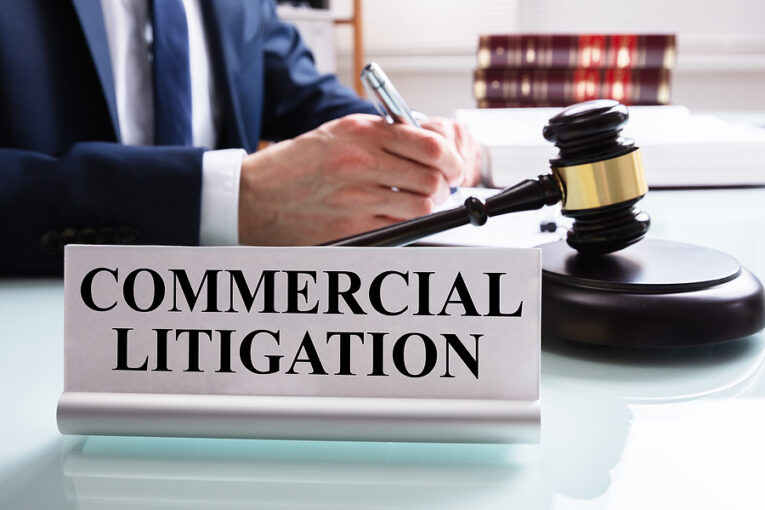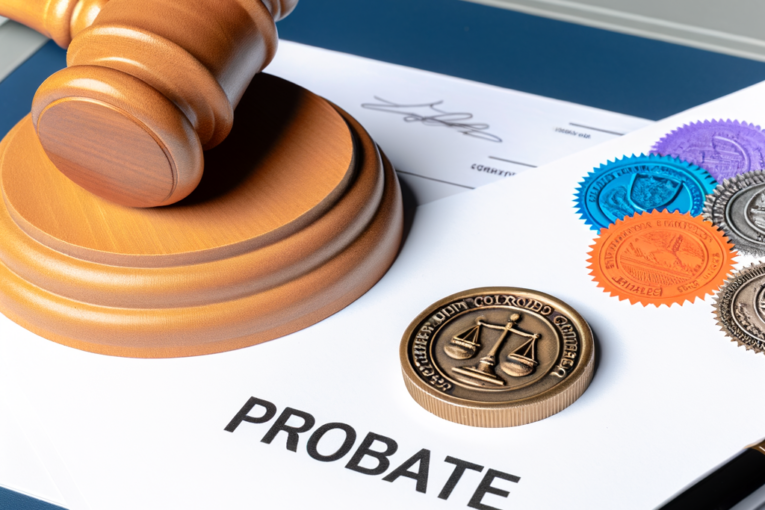Introduction to Commercial Litigation
Commercial litigation refers to the legal process of resolving commercial disputes between parties such as businesses, corporations, partnerships, or individuals. As an area of law, commercial litigation can involve complex cases with high stakes. Having a strong grasp of the key aspects of commercial litigation is crucial for any business or organization. This guide provides a comprehensive overview of what you need to know about commercial litigation.
Understanding the commercial litigation process, the laws governing it, and how to effectively pursue or defend against a commercial litigation case can make the difference between success and failure in business. With the right commercial litigation strategies and preparation, businesses can protect their interests when disputes inevitably arise.
Understanding the Basics of Commercial Litigation
Commercial litigation is a broad term that encompasses legally solving business disputes arising from transactions or dealings between enterprises. It is a type of civil litigation focusing specifically on business-related matters rather than personal injury, family law, criminal cases, or other types of civil lawsuits.
The most common triggers for commercial litigation include breaches of contract, business torts, antitrust issues, employment disputes, and intellectual property infringement. Cases can be heard in either state or federal courts, depending on the jurisdiction and circumstances of the dispute.
Commercial litigation differs from other forms of civil litigation in its complexity, high financial stakes, and reliance on detailed contracts and transactions. These cases often require extensive pre-trial preparation and lengthy trials. A commercial litigation lawyer experienced in business law is essential for mounting an effective case or defense.
Exploring the Legal Framework for Commercial Litigation
A mix of state and federal laws applies to commercial litigation cases. Key statutes include the Uniform Commercial Code (UCC), state contract law, federal antitrust regulations, employment laws, securities regulations, and intellectual property laws. The legal claims in a case will determine which specific laws apply.
Jurisdiction for commercial litigation is based on the amount of controversy and the parties involved. Cases for less than $75,000 may be handled in state civil courts, while higher amounts can initiate federal diversity jurisdiction. The state where business dealings occurred typically determines venue.
Both federal and state court judges play a role. A judge hears only bench trials, whereas the jury renders a verdict in jury trials. Appeals processes exist at both court levels after a trial.
Key Players in Commercial Litigation
Several different parties may participate in a commercial litigation case. The key players include:
- Plaintiffs: the individuals or business entities who initiate a lawsuit seeking damages or specific performance based on the alleged actions of the defendants.
- Defendants: the individuals, businesses, or organizations against whom the lawsuit is filed and who must respond and build a defense against the plaintiff’s claims.
- Attorneys: Each side has its own lawyers to represent their interests and navigate the litigation process. Commercial litigation lawyers handle these specialized business dispute cases.
- Expert witnesses: those hired to analyze evidence and provide expert opinions to support one side’s claims in areas such as damages calculations, technical matters, and standard business practices.
Phases of Commercial Litigation
Commercial litigation follows defined phases, from initial filing to a final resolution. Here are the key stages:
- Pre-litigation: The pre-lawsuit phase involves evaluating claims, trying settlement negotiations, and initiating a legal hold to preserve evidence if litigation seems imminent.
- Commencement: The plaintiff files a complaint outlining claims against the defendant, who then must respond within a set timeframe with their defense arguments.
- Discovery: This crucial phase has both sides collecting documents, data, and testimony to build their case and understand the opposition’s position. Motions may be filed to compel additional discovery access.
- Settlement talks: The litigation parties often engage in settlement negotiations to avoid a costly trial. A judge may host a settlement conference.
- Trial: If no settlement is reached, the case proceeds to a bench or jury trial. The verdict then determines if the plaintiff prevailed and if damages were awarded.
- Post-trial: The losing party may file appeals challenging the outcome. If the judgment stands, the defendant must comply with remedies ordered by the court.
Analyzing Common Types of Commercial Litigation Cases
There are several broad categories of legal disputes that initiate commercial litigation:
- Breach of contract: Allegations that a business failed to meet its contractual obligations, causing quantifiable monetary harm
- Intellectual property violations: copyright, patent, or trademark infringement claims when one company uses IP without permission.
- Securities issues: Shareholders may sue for losses caused by false or misleading information from a corporation.
- Antitrust matters: anti-competitive business practices like price-fixing can trigger federal antitrust lawsuits.
- Employment disputes: Businesses may face claims of discrimination, wrongful termination, or failure to pay wages.
The specific business dealings involved will shape the exact nature of the commercial litigation case. An experienced commercial litigation lawyer can assess the issues and applicable laws.
Factors Influencing the Outcome of Commercial Litigation
Many aspects affect the final resolution of a commercial litigation matter. Key factors include:
- Evidence: Physical proof, documents, communications, and testimony are critical to substantiating claims against the opposition.
- Burden of proof: Plaintiffs must prove their allegations according to the relevant legal standard, while defendants must refute claims with countering evidence.
- Judge/jury: Bench trials decided solely by a judge involve different strategies than jury trials, where juror perspectives influence outcomes.
- Damages: The precise calculation of monetary harm and losses must be demonstrated, impacting the size of any judgment awarded.
- Remedies: Beyond damages, plaintiffs may seek injunctions, specific performance orders, or other equitable remedies.
- Defenses: Procedural issues, jurisdictional questions, or other defenses can defeat a plaintiff’s claims before trial.
Mitigating Commercial Litigation Risks
Proactive steps can reduce exposure to commercial litigation risks.
- Carefully drafted, detailed contracts define the terms of business relationships and protect both parties.
- Compliance protocols, documentation procedures, and employee training limit potential claims.
- Insurance policies like errors and omissions coverage provide resources to defend against lawsuits.
- Alternative dispute resolution methods like mediation or arbitration can quickly resolve disputes without litigation.
By identifying problem areas and implementing preventive measures, businesses can avoid scenarios likely to precipitate lawsuits. Partnering with knowledgeable commercial litigation attorneys improves prevention and preparation.
The Future of Commercial Litigation
Certain trends are shaping the future evolution of commercial litigation:
- Technology is allowing more effective data collection and analysis during discovery and as trial evidence.
- Complex global business interactions make the choice of venue and jurisdiction more challenging.
- Costs continue to rise, driving more interest in alternatives to litigation for resolving disputes.
- Class action lawsuits are becoming more common, raising the stakes for defendants.
- Court backlogs may necessitate reforms to expedite overwhelmed commercial dockets.
Advances in technology and finance will open new frontiers in commercial dealings, which in turn will influence litigation processes. Parties invested in the commercial litigation space must stay informed of emerging trends and plan accordingly.
Conclusion
Commercial litigation provides an important, structured process for resolving complex business disputes through the legal system. However, litigation involves major time commitments and financial costs. Understanding the framework, developing prevention strategies, and seeking expert legal guidance are the keys to effectively protecting commercial interests. Careful management of legal risks continues to be crucial as the business litigation environment evolves.
FAQs
Commercial litigation is expensive, with attorney fees, expert witnesses, discovery demands, and other costs often totaling tens or hundreds of thousands of dollars. Sizable judgments or settlements can reach into the millions.
Most commercial cases resolve in 1-2 years, though large or complex disputes can last over 5 years through lengthy trials and appeals. Simple contract matters may conclude within months.
Yes, through direct negotiations between the parties or alternative dispute resolution methods like mediation. Settlements avoid further court costs and the risk of losing at trial.
Careful contract drafting, compliance policies, documentation, insurance protection, and fostering good business relationships reduce the risks of disputes progressing to litigation.
Calculating provable lost profits, business valuation declines, investor losses, and other specific monetary harm provides the basis for assessing litigation damages.
Yes, though some court injunctions may restrain certain business activities pending resolution of the case. Ongoing operations help quantify commercial damages.
The expense, time, and uncertainty of achieving a favorable verdict pressure many parties to settle. Losing at trial involves paying damages and legal costs.
Arbitration uses private dispute resolution forums instead of courts, offers confidentiality, and can provide faster, cheaper outcomes than traditional litigation.
Mediation, arbitration, early neutral evaluation, and private settlement conferences allow dispute resolution without filing formal lawsuits.
The governing laws, regulatory environment, contract norms, and types of disputes vary significantly between industries like construction, finance, healthcare, retail, and technology.





